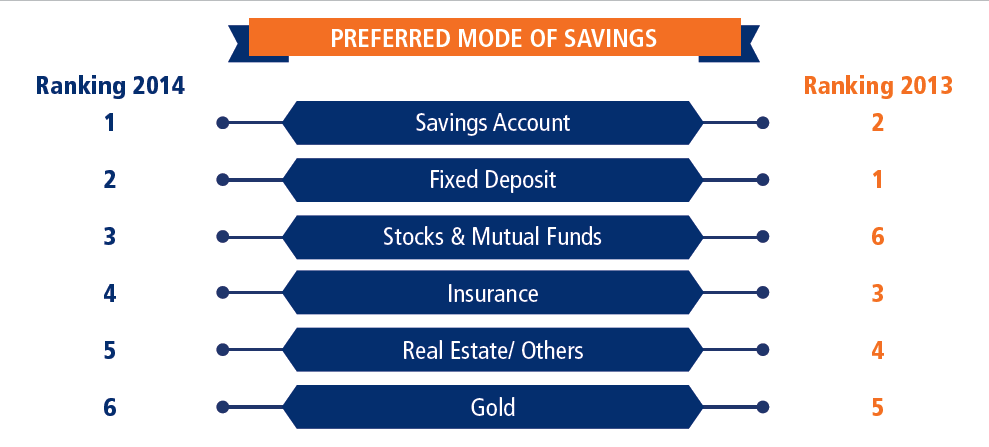Popularity of mutual funds as the most preferred investment avenue for children’s future has grown to 27% in 2014 from 18% in 2013, shows a survey conducted by ING Vyasa Bank.
Mutual funds are the third most preferred mode of investments for parents when it comes to saving for their children’s education and marriage, shows ING Zing Survey 2014 done by ING Vyasa Bank. The popularity of mutual funds among parents has grown to 27% in 2014 compared to 18% in 2013.
The survey was conducted online across the country. Over 4,000 parents responded to the queries on savings, spending habits of their children, etc. This survey captured the changing behavioral trends among parents and kids on money management and how they adapt to each other’s needs and requirements.
Mutual
fund which was in the sixth position last year has overtaken other investment
avenues like insurance, real estate and gold in terms of preference.
Savings
account and bank fixed deposits were the most preferred avenues of investments for
children’s future. However, people seem to have less interest in bank fixed
deposits since its popularity among parents dropped to 45% in 2014 from 59% in
2013.

While savings for child’s education is a major cause of concern for 77% of parents, 27% parents want to save for their child’s marriage. Suresh Sadagopan of Ladder7 Financial Advisories is of the view that financial advisers have a great opportunity to grow their business by catering to this section. “Parents are very concerned about their children’s education. Financial advisers should take it as an opportunity. Advisers should try to understand the aspirations and goals of parents and help achieve them.”
Vishal Dhawan of Plan Ahead Wealth Advisers believes that advisers should try to make their clients understand the difference between investment and savings. “The report shows that majority of investors prefer savings accounts and bank FDs for their child’s education and marriage. Both these avenues will deliver suboptimal returns to investors. Since child education and marriage are long term goals, equity exposure is essential. Also, equity outperforms all other assets class in long term. Secondly, advisers should make a proper strategy while planning for child’s future and ask their clients to maintain a discipline. Typically, investors redeem such investment if they want to buy a house, car or in other financial needs. Advisers should convey their client to stick to their investment when it comes to their children’s future.”
Interestingly, 22% of parents save over 15% of their monthly income for their children’s future.





